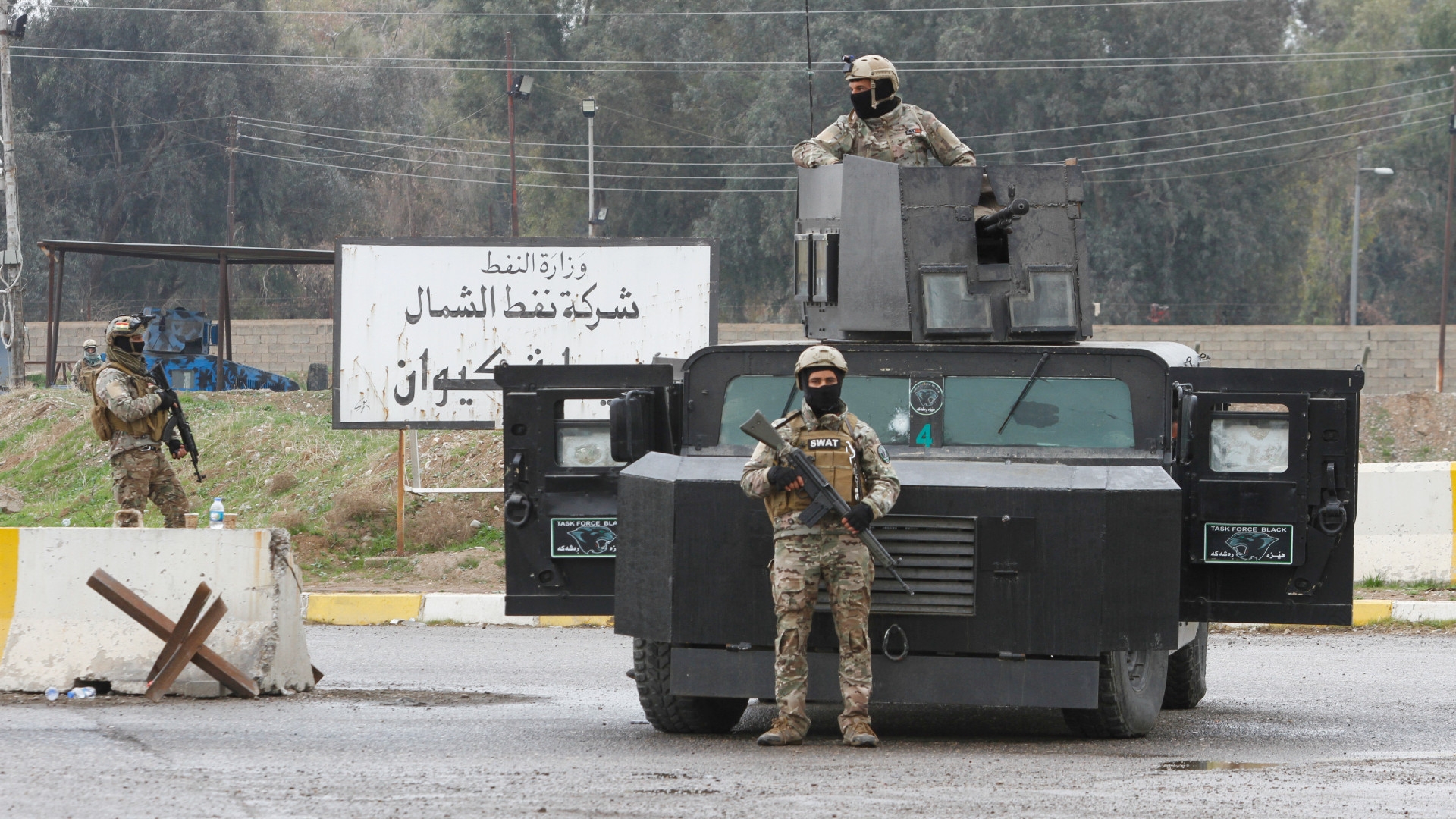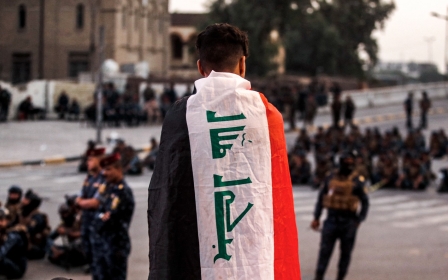Iraq: After years of setbacks, what the Kurds need most is unity

Since 2003, Iraqi Kurds have played a significant role in shaping successive Iraqi governments. Over the years, they successfully attained semi-autonomy and economic independence. However, their progress has steadily declined due to a series of federal policies and decisions.
In February 2022, Iraq's Federal Supreme Court invalidated the Kurdistan Region's oil sales by ruling that only the federal government has the constitutional authority to export crude oil and enter international agreements.
The Kurdistan Regional Government (KRG) experienced another setback in generating revenue last March when Ankara was found to have broken a 1973 bilateral agreement with Baghdad (renewed in 2010), which gave the Iraqi federal government complete control over Iraq's oil sales through the pipeline to Turkey.
A complaint was taken to the International Chamber of Commerce, which ordered Turkey to pay Iraqi central authorities $1.47bn for violating the agreement and purchasing directly from the Kurds without permission.
Stay informed with MEE's newsletters
Sign up to get the latest alerts, insights and analysis, starting with Turkey Unpacked
These decisions impeded the KRG's ability to sell oil - the economic backbone of the Kurdish region - independently, and weakened its position at the bargaining table with Baghdad. The two governments have been engaged in federal budget, oil export and border negotiations, among other issues, since 2013.
Internal strife within the Kurdish political scene has also contributed to the region's declining influence and authority. Legal disputes between the Kurdish opposition and the two main ruling parties, the Kurdistan Democratic Party (KDP) and the Patriotic Union of Kurdistan (PUK), gave rise to Iraq's top court becoming the ultimate authority in resolving partisan conflict.
With federal authorities assuming control over the region, the future of the divided Kurdish entity remains uncertain.
Onset of decline
In 2017, the Kurdistan region held a referendum on secession upon the request of its main partners within the Iraqi Kurdistan National Union, with more than 90 percent of voters supporting independence.
This move triggered a series of retaliatory measures that precipitated the region's political and economic downturn. The federal government of Iraq, along with neighbouring Iran and Turkey, imposed sanctions on the Kurds.
Iraq's restrictions on oil exports led to the KRG's administrative and military withdrawal from large areas comprising territories disputed between the Kurds and Baghdad, most notably the oil-rich Kirkuk Governorate. This continued for more than a year, until the two parties reached a temporary understanding in 2018 to export Kirkuk oil through the KRG's pipeline to Turkey.
The Kurdistan Region's 2017 referendum on secession triggered a series of retaliatory measures that precipitated the region's political and economic downturn
Iraq's Federal Supreme Court subsequently issued its decision to stop exporting the KRG's oil through Turkey, barring the region from exporting its oil independently. The top court then ruled against the extension of the Kurdistan Region's parliament, declaring it unconstitutional following a lawsuit by opposition parties in Erbil.
The decision was preceded by days of sudden changes to the draft budget, which the KDP considered a "coup against the political agreements" entered into as part of the State Administration Coalition forming the government of Iraqi Prime Minister Mohammed Shia al-Sudani.
The KRG argued that the changes made to the draft budget by members of the finance committee of the parliament were unconstitutional and inconsistent with the agreement signed between the regional and federal governments.
The imposed amendments to the federal budget, in place for the next three years, are the last-but-not-least push to squeeze the Kurdistan Region and undermine the authority and independence that it once enjoyed.
The KRG has been further weakened by internal political division, allowing the Iraqi federal government to swiftly regain control of Kurdistan's liquid gold and its revenues. This represented a glaring setback for the region, which was free to export its own oil since 2013.
Meanwhile, the Kurdish opposition parties posed legal challenges to the vote by the Kurdistan Region's parliament to extend the term of the legislature, arguing that the extension would nullify one of the region's three pillars - presidential, parliament, and government. Yet the extension itself came about due to disagreements between the ruling parties over a new electoral law and subsequent delays in holding elections.
The lawsuit resulted in a Federal Supreme Court decision declaring the extension unconstitutional.
Given these critical losses, many are now questioning whether the region has lost its bargaining power with Baghdad.
Losing influence
There are several factors that contributed to the decline of the KRG's authority, including a preference for partisan gains over national interests by the main Kurdish parties and wide political differences between them.
The chronic division between the rival parties, especially since the referendum for statehood in 2017, has contributed to the Kurdistan Region's loss of political influence. Both in Baghdad and on the regional and international stage, opponents and even some close allies have perceived the region as weak and on the brink of civil war.
The region is divided on matters of security, finances and governance as the result of internal tensions that have long been criticised by external powers.
The relative failure of the KRG's oil policy also played a significant role in weakening the region. Despite the many contracts, foreign investment and job creation, the region still accumulated a $3.348bn debt to oil companies.
Random appointments to the heavily partisan KRG institutions also paved the way to systemic corruption that placed political parties over people. It culminated in the government's inability to pay salaries regularly and fully, even after years of daily oil sales and deferred payments on export expenses.
The government's failure to invest in centres for strategic studies has also led to the absence of a prudent strategic policy that would address rising geopolitical issues. The existing Kurdish institutions are run by unqualified individuals who are hired along partisan lines.
The persistent political, administrative and financial corruption in the region, similar to the situation in Iraq, has further contributed to the region's declining stature. The appointment of unfit candidates to official posts in the federal government - whether as parliamentarians, ministers or negotiators with the federal government - has always undermined the interests of the Kurdish people.
To regain its influence and secure its constitutional rights fully, the region must prioritise self-organisation, including legitimate institution building and the strengthening of its relationships with neighbouring countries and the international community at large.
Yet the best remaining means to regain the Kurdistan Region's stature is by ending the rift between the main forces, the KDP and the PUK, and creating a unified position on national interests while dealing with the federal government.
A new path
In recent years, the Federal Supreme Court has become a refuge for opposition groups, such as the Islamic parties and the New Generation Movement, seeking to obstruct the authority of the two ruling parties and extract gains.
The use of the court to invalidate the agreements, settlements and customs established by the political process will inevitably have repercussions that may prompt the two main parties to follow a new path.
This path may require passing laws that establish certain concessions for the region and formulating new agreements that would enable them to confront the growing opposition parties within the region.
For sure, the court judgments may limit the power of the two parties, but not to the extent that it would result in major changes.
The Kurdistan Region is confronting a well-planned campaign to undermine its authority by the Iraqi federal government and neighbouring states, Turkey and Iran, through sanctions and other measures.
Above all, Kurdish unity is the foundation for keeping the region intact, especially when it comes to negotiating their rights with the federal government. Any internal disputes between the main parties should be settled and not come at the cost of national interests.
The views expressed in this article belong to the author and do not necessarily reflect the editorial policy of Middle East Eye.
Middle East Eye delivers independent and unrivalled coverage and analysis of the Middle East, North Africa and beyond. To learn more about republishing this content and the associated fees, please fill out this form. More about MEE can be found here.






